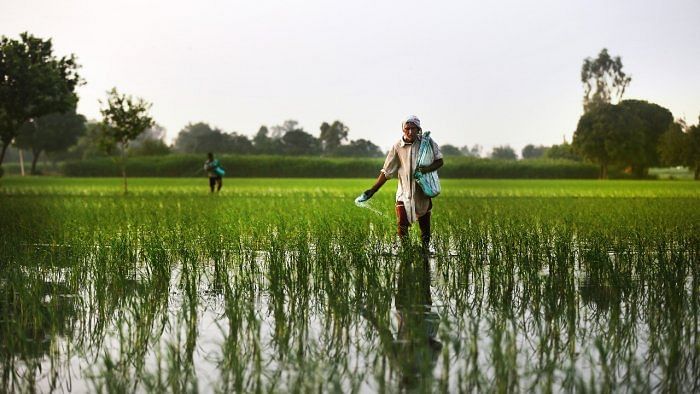
The global campaign on World No Tobacco Day (WNTD) 2023 is focused on raising awareness about sustainable food crops instead of tobacco. It will also aim to expose the tobacco industry’s efforts to interfere with attempts to substitute tobacco cultivation with sustainable crops, thereby causing a global food crisis.
Globally, tobacco kills more than 8 million people each year. Tobacco is the most significant cause of premature death in the world, accounting for 25 per cent of all cancer deaths, and is an avoidable health risk. Hence, SDG target 3.4 is to reduce premature deaths from NCDs by one-third by 2030, including cardiovascular and chronic respiratory diseases, cancers, and diabetes.
Currently, tobacco is grown in over 125 countries as a cash crop over an estimated area of 4 million hectares; India is the second largest producer (8.3 per cent).
Many of these countries use large areas of fertile land to grow tobacco rather than healthy food. Tobacco-growing countries often face a negative economic impact due to the adverse health, environmental, and social impacts of growing tobacco. In many cases, foreign exchange earned from tobacco exports is used to import food. Growing tobacco causes ill health among farmers and farm workers and irreversible environmental loss of precious resources such as water sources, forests, plants, and animal species.
The harmful effects of cultivation on the environment are particularly apparent in low- and middle-income countries. Compared with other agricultural activities such as maize growing and even livestock grazing, tobacco farming has a far more destructive impact on ecosystems, as tobacco farmlands are more prone to desertification.
Tobacco growing is resource-intensive and requires heavy use of pesticides and fertilisers, which contribute to soil degradation. Land used for growing tobacco then has a lower capacity for growing food crops since tobacco depletes soil fertility, resulting in a food shortage.
A record 349 million people across 79 countries are facing acute food insecurity; many are in low- and middle-income countries, including over 30 countries on the African continent (WHO, March 2023).
The 2023 Global Report on Food Crises, released on May 3, indicates that in seven countries (Afghanistan, Burkina Faso, Haiti, Nigeria, Somalia, South Sudan, and Yemen), affected populations faced catastrophic levels of food insecurity, which indicates the threat of famine and extremely critical levels of malnutrition.
The global food crisis has been partially made worse, following Russia’s invasion of Ukraine, by the growing number of food trade restrictions put in place by countries with the goal of increasing domestic supply and reducing prices.
In 2021, the total area of harvested tobacco in India amounted to about 433 thousand hectares. Ending tobacco farming would collaterally free up such land for alternative crop farming. In India, economically viable alternative crops to the highly remunerative tobacco have emerged in the form of mixed cropping of hybrid cotton, chilli, groundnut, and French beans.
India esports tobacco to about 100 countries fetching an estimated foreign exchange of Rs 4,400 crore and more than Rs 13,000 crore in excise revenue. Its total contribution
to the national economy is Rs 18,255 crore.
However, any profits to be gained from tobacco as a cash crop may not offset the damage done to sustainable food production. Against this background, there is an urgent need to take legal measures to reduce tobacco production and help farmers move into the production of alternative food crops.
Four in 10 households in India have a smoker, which means that in addition to direct tobacco consumption, a large number of Indians are exposed to secondhand smoke. This has serious consequences for health and economy. The economic costs of tobacco use amount to approximately 1.04 per cent of India’s GDP, while the excise tax revenue from tobacco in the previous year was only 12.2 per cent of its economic costs. The direct medical costs alone amount to 5.3 per cent of total health expenditures.
The tobacco industry often touts itself as an advocate for the livelihood of tobacco farmers, which is not true. The intensive handling of insecticides and toxic chemicals during the cultivation of tobacco is harmful to farmers and their families.
The 2023 WNTD campaign calls on governments and policymakers to step up legislation, develop suitable policies and strategies, and enable market conditions for tobacco farmers to shift to growing food crops that would provide them with a better life and future.
(The writer is a consumer activist involved in tobacco control campaigns)